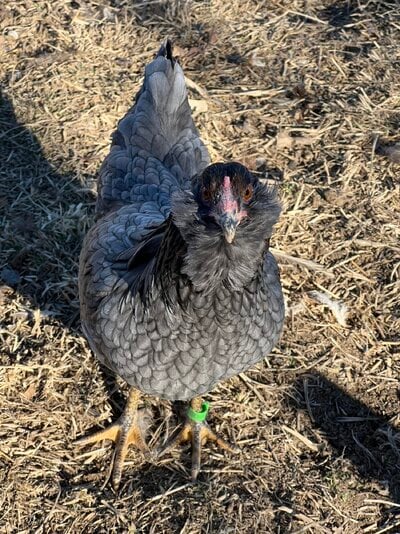Willow Ridge Farm
In the Brooder
- Nov 5, 2021
- 6
- 8
- 24
I live in a snowy climate and would like to collect some eggs to put in the incubator to hatch in mid March. If I collect the eggs at the end of the day and they have been possibly under 40F for a few hours, has that already killed the embryo? If I collect them and they haven’t been under 40F, I can put them in a cooler in the garage and, if I close the lid, this will keep them in the mid 50F. If I leave the lid cracked, they get too cold. How do people store eggs before incubation in cold climates?? Am I wasting my time if they are already dead if I collect them at the end of the day if they’ve been cold for several hours? Photo of my 5 month old Olive egger for attention. 





